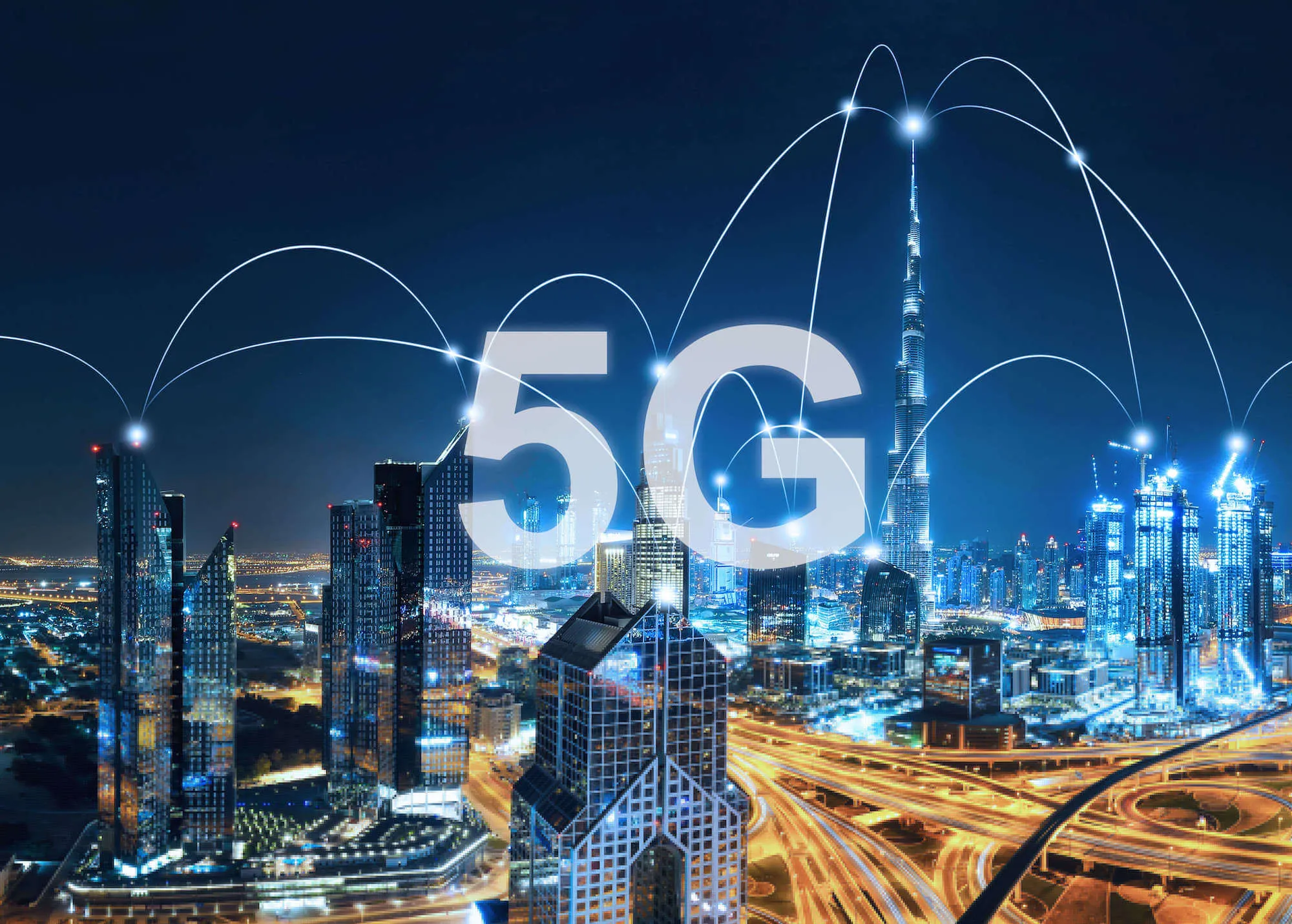5G: What Business Leaders Need to Know
Carrying the promise of a faster, more connected future, 5G has been called the lifeblood of the new economy. While it's certainly true it deserves its place in the business headlines, the race for 5G has also generated claims that are confusing, exaggerated and at times downright misleading.
This article helps business leaders cut through the 5G hype and provides a more realistic understanding of what 5G really has to offer, both in the immediate future and far into the upcoming decade. Read on to discover what you need to know about 5G technology, its benefits and its impact on businesses today.
What is 5G?
5G is the next generation of wireless technology.Just as 3G is now a non-factor, 5G will completely change how we harness the power of the internet today.
Why do we need 5G?
There are three major ways in which 5G will be transformative and beneficial for us all. With vastly improved speed, lower latency and greater capacity, 5G will equip businesses with internet speeds to spring ahead of their competition. Here’s a detailed breakdown of 5G technology’s benefits and impact on businesses.
5G is super fast
The first improvement is the one causing the biggest ripples, primarily because it is the easiest to demonstrate. Simply put, 5G will be much faster than 4G. Much, much faster.
At its fastest, 4G allows us to download at a rate of up to 50 megabits per second (Mbps). Even at average speeds, it is still generally at least 10 times faster than 3G. 5G technology, on the other hand, promises early download speeds of between 4 and 8 gigabits(Gbps) per second (1 gigabit equals 1000 megabits), with the potential to reach 20 Gbps per second on the downlink. The speeds are so great that its greatest potential business applications are still at the imagination stage.
In the shorter term, it means that pretty much anything you want to download will be on your device within a matter of seconds and that's only the tip of the speed iceberg.
5G is super reactive
The second improvement 5G technology will offer is a vast reduction in the delay between when a signal is received and its response. That delay is known as 'latency', and it is already pretty short, considering that with 4G, latency is measured in hundredths of a second. On 5G networks, however, latency will be as low as one-thousandth of a second or ten times faster than it takes your brain to process an image.
Why is this characteristic of 5G technology considered a benefit? Low latency will play a vital role in applications where real-time response is critical, such as in remote surgery or self-driving cars.
5G is super connected
The third way in which 5G will leave previous mobile generations in the dust is its capacity; the sheer number of devices it will be able to connect to at once. Currently, the target is to achieve up to 1 million simultaneous connections per square kilometre. This will be key in driving smart building and smart city initiatives.

The ultra low latency of a 5G connection will be crucial in making fully autonomous self-driving cars a reality.
5G: A (realistic) overview
Given its promise, communications service providers (CSPs) worldwide have thrown themselves into bringing 5G technology to users as soon as possible. However, in reality, a complete move from 4G to 5G is huge; what ZDNet refers to as 'a capital improvement project the size of the entire planet'. So, it will happen, but it will also take time. Analyst Gartner only expects three regions (North America, China and Japan) to get even close to nationwide coverage in the next five years. Western Europe will take a few years to catch up with the rest of the world reaping full benefits at the end of next decade.
So why think of 5G now?
The race toward 5G is forcing technology to surge forward, and while 5G will be a great technological leap for us all, we will reach the finish line in a series of smaller, but significant, jumps. Far before any country completes full, nationwide 5G networks, 5G will be launched in smaller pockets. Here in Malaysia, Maxis, the first company to bring 4G to the market, is already rolling out 5G as we speak. In addition, plans are already for Malaysia's first 5G-enabled township.
In fact, while the world slowly readies itself for widespread public 5G, CSPs are working with forward-thinking businesses to first deploy private 5G networks in contained areas such as factories, ports, stadiums, convention centres and corporate campuses. And while it is estimated that a great majority of business leaders still don't understand the practical opportunities 5G will offer, Deloitte estimates that 'more than 100 companies worldwide will have begun testing private 5G deployments by the end of 2020.' While 100 seems like a small number, it is actually a significant step expected to advance widespread adoption. After all, it is forward-thinking business owners that will stay on top.
Immediate advances
In the meantime, technologies are advancing parallel to 5G, offering close-to-5G speeds and capacity. The later iterations of 4G, such as 4G LTE and 4G LTE-A deliver speeds of up to 1 Gbps. Proto-5G, a kind of extended 4G technology is even faster and able to provide enhanced connectivity support.
In Malaysia, the launch of the first commercial narrowband-internet-of-things service (NB-IoT) also promises 5G-like capabilities in strategic technology hotspots around the country, including Cyberjaya, Putrajaya, KLCC, and more. These smaller-scale roll-outs will be instrumental to both demonstrating the opportunities 5G has to offer as well as providing early platforms for future 5G applications to thrive.
Harness the benefits of the Maxis 5G Alliance Programme (M5GA)
The future is endless with M5GA by Maxis. With this programme, we are creating an ecosystem of partnerships that will lead 5G technological breakthroughs in the country. Each partnership journey will be tailored according to the enterprise’s needs, and our partners include Gamuda Land, Google Cloud and Huawei, just to name a few. Get a head start by getting the right 5G plan for your business today.
While it will take at least a decade for the whole world to fully adopt and benefit from global 5G availability, advantages for forward-thinking companies are already on the horizon.






